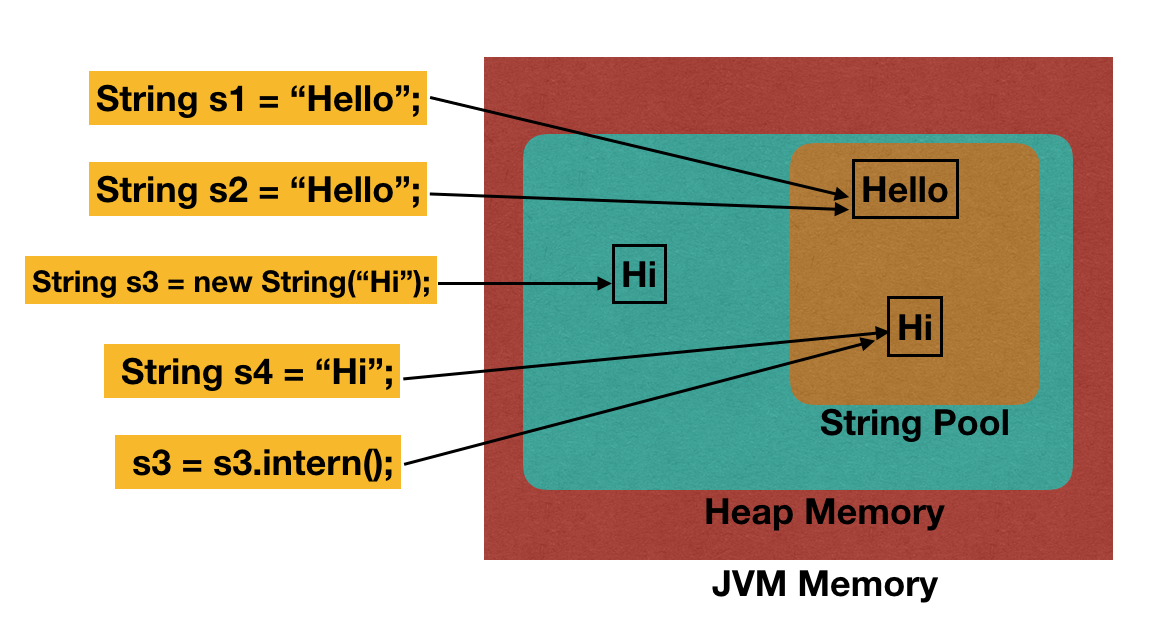Why Are Strings Immutable in Java? Discovering the Style Choices
Wiki Article
What Is Unalterable Strings and Just How It Functions
In the realm of programming, understanding the principle of unalterable strings is extremely important for developing safe and robust applications. Unalterable strings refer to strings that can not be altered after they are created, making sure data stability and predictability within the code. This essential principle plays an essential role in various programs languages and supplies a special technique to handling information. By discovering the complexities of how immutable strings operate, one can discover a world of advantages and possibilities that can boost the top quality and efficiency of software program growth.The Essentials of Immutable Strings
Immutable strings, as a basic idea in shows, are character sequences that can not be transformed when they are developed. This suggests that when a string is assigned a value, that worth can not be altered. In languages like Python and Java, strings are immutable items, leading to various ramifications in regards to memory management and information stability.One of the vital benefits of unalterable strings is that they supply a complacency in information manipulation. Given that the content of an unalterable string can not be customized, it makes certain that the original information remains intact, minimizing the risk of unplanned changes throughout program execution (Why are strings immutable in Java?). This residential property also simplifies debugging processes, as programmers can rely on that as soon as a string is defined, its worth will certainly not be accidentally modified
When a new string is created based on an existing one, rather than modifying the original string, the brand-new value is stored separately. Overall, comprehending the essentials of unalterable strings is essential for grasping programming concepts and optimizing code efficiency.
Advantages of Immutable Strings
Structure upon the security and performance advantages of unalterable strings, their benefits reach enhancing code dependability and simplifying simultaneous programs jobs. By being unalterable, strings can not be changed after production, which eliminates the threat of unintentional adjustments in the data they keep. This intrinsic immutability makes certain that when a string is produced, its worth stays consistent throughout the program's execution, reducing the opportunities of bugs brought on by unforeseen modifications.Furthermore, immutable strings contribute to code integrity by making it less complicated to reason regarding the state of a program. Since strings can not be transformed, programmers can rely on that a string will certainly always hold the very same value, streamlining debugging and maintenance initiatives. This predictability leads to much more dependable and secure codebases.

Implementation in Shows Languages
Within various programs languages, the consolidation of unalterable strings is an essential element that influences exactly how information is taken care of and controlled within code structures. The application of unalterable strings varies across different shows languages, with each language using its very own mechanisms to support this idea.

In contrast, languages like C and C++ do not have integrated support for immutable strings. Designers in these languages should by hand carry out immutability by applying policies within their code to avoid straight modifications to string items.
Best Practices for Dealing With Unalterable Strings
When taking you could try here care of immutable strings in shows languages like Java and Python, adhering to ideal practices makes sure safe and secure and reliable information adjustment. Among the essential finest techniques is to utilize StringBuilder or StringBuffer as opposed to straight manipulating strings, especially when dealing with substantial concatenation operations. These classes supply mutable choices for string manipulation, aiding to stay clear of unneeded memory allowances and boosting performance.In addition, when functioning with delicate information such as passwords or API secrets, it is essential to prevent saving them as ordinary message in immutable strings. Using safe and secure storage mechanisms like char arrays or specialized libraries for handling delicate information aids mitigate protection risks connected with immutable strings.
Real-world Applications and Examples
Discovering useful applications of immutable strings in numerous sectors exposes their substantial effect on data integrity and system integrity. In the medical care industry, immutable strings play a vital role in making sure the security and discretion of person data. By stopping unapproved alterations to delicate information such as clinical records and prescriptions, unalterable strings assist keep compliance with strict personal privacy policies like HIPAA.Banks also take advantage of the unalterable nature of strings to improve the security of customer information and purchase records. Unalterable strings assist prevent fraudulence and unapproved changes to financial details, supplying a durable protection against cyber hazards and ensuring the count on and self-confidence of customers.

Verdict
To conclude, unalterable strings are dealt with and unchangeable series of personalities that use advantages such as thread security and boosted efficiency in programming. They are carried out in different programming languages to ensure data honesty and safety. Finest methods YOURURL.com for functioning with immutable strings consist of avoiding direct modifications and utilizing techniques that return brand-new string items. Real-world applications of unalterable strings include data file encryption, caching, and string adjustment tasks.Unalterable strings refer to strings that can not be changed after they are produced, making certain information integrity and predictability within the code. When a try this brand-new string is created based on an existing one, instead than changing the original string, the new worth is kept separately.In languages like Java and Python, strings are immutable by default, meaning that when a string things is produced, its value can not be transformed - Why are strings immutable in Java?. Ideal techniques for functioning with unalterable strings consist of avoiding direct modifications and making use of techniques that return new string items. Real-world applications of immutable strings include information file encryption, caching, and string adjustment jobs
Report this wiki page